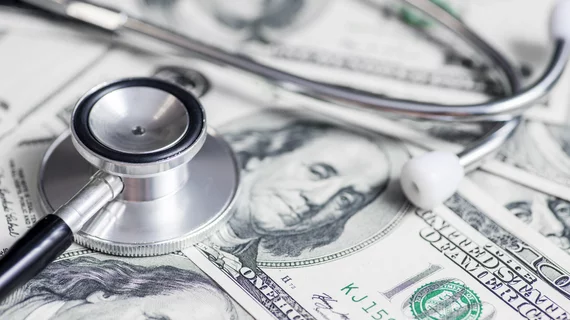Philips-owned BioTelemetry to pay nearly $15M for allegedly misleading clinicians to secure higher reimbursements
BioTelemetry, a Pennsylvania-based cardiac monitoring company owned by Philips, and LifeWatch Services, its Illinois-based subsidiary, have agreed to pay more than $14.7 million to resolve allegations by the U.S. government that they repeatedly violated the False Claims Act. The companies allegedly submitted claims to federal healthcare programs such as Medicare and TRICARE for a higher level of remote cardiac monitoring than physicians wanted, helping them secure higher levels of reimbursement than were medically necessary, from July 2014 to December 2020.
Philips Healthcare acquired BioTelemetry for $2.8 billion back in 2020.
“BioTelemetry’s leadership in the large and fast growing ambulatory cardiac diagnostics and monitoring market complements our leading position in the hospital,” Frans van Houten, CEO of Royal Philips, said at the time. “Leveraging our collective expertise, we will be in an optimal position to improve patient care across care settings for multiple diseases and medical conditions.”
A closer look at the allegations against Philips-owned BioTelemetry and its subsidiary
BioTelemetry and LifeWatch marketed its ACT-3L device, also known as the MCT-3L device, to physicians as being capable of three different types of cardiac monitoring: Holter monitoring, event monitoring and telemetry. These services are all associated with different reimbursement levels, with telemetry bringing in the highest level of reimbursement. According to the U.S. government, the companies knowingly ran an online ordering system for physicians that “caused unwitting clinical staff to select options that would enroll the patient in the most expensive service, telemetry, even when the doctor intended to order a less expensive service.” In addition, the government alleged that sales personnel would help push clinicians to select the most expensive service when it was not necessary, and written notes that “specifically reflected the treating physicians’ intent to order a service other than telemetry” were “disregarded.”
“Diagnostic companies, like other providers, are expected to bill federal healthcare programs only for medically necessary services,” Principal Deputy Assistant Attorney General Brian M. Boynton, head of the U.S. Department of Justice (DOJ) Civil Division, said in a statement. “We will hold accountable those who misuse taxpayer-funded programs for their own enrichment.”
“Companies that bill Medicare and other federal healthcare programs must ensure that they are billing for the services actually ordered by medical providers, rather than the most expensive service,” added U.S. Attorney Jacqueline C. Romero of the Eastern District of Pennsylvania. “This office will continue to pursue cases that will reduce costs for the government while ensuring that patients receive consistent and quality care, as prescribed by their physicians.”
The primary whistleblower who alerted the U.S. government about these practices will receive approximately $2.3 million for their participation.
According to the DOJ statement, resolving these allegations does not represent an admission of guilt.
“There has been no determination of liability,” the agency said.
Philips was asked to comment on the DOJ's announcement, but has not replied at this time.

